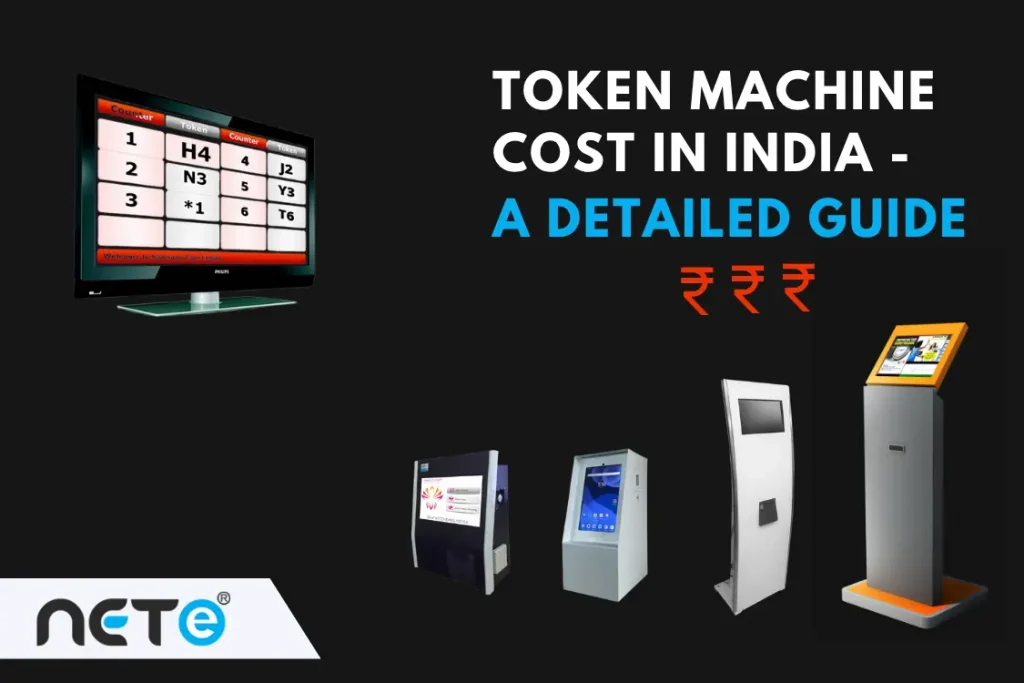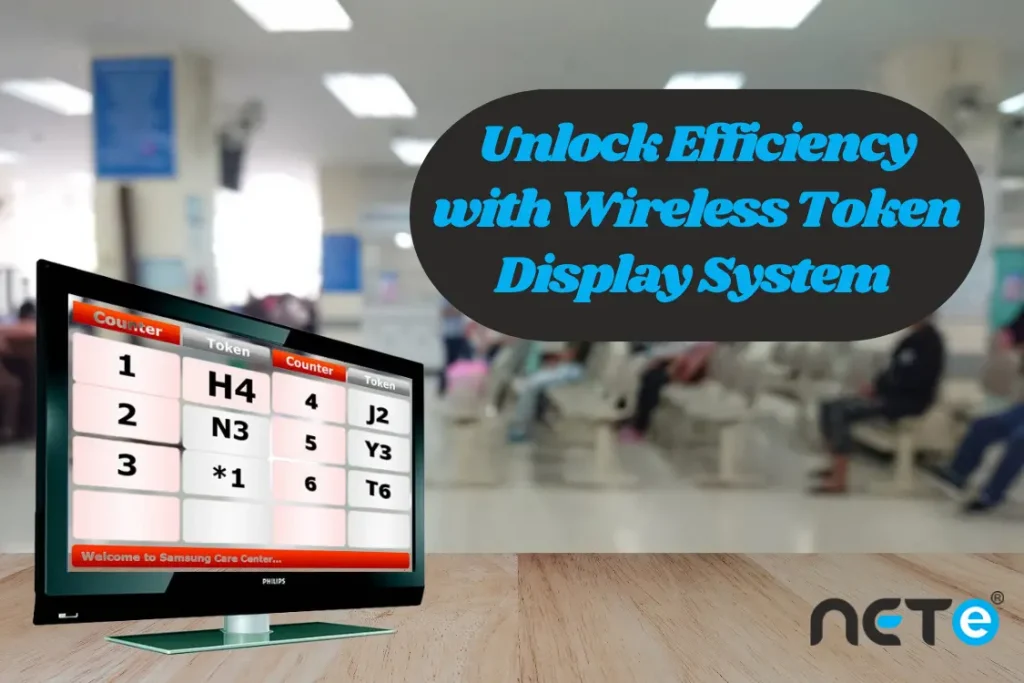
- Published: June 26, 2025
Token Machine Price in India – A Detailed Guide
Whether you’re managing a hospital, bank, retail store, or service center, customer flow and queue management are crucial. Token machines have become essential tools in India for streamlining operations and improving customer experience. But the big question remains: How much is the token machine price in India?
In this updated guide, we break down the various types of token machines, pricing ranges, key features, and how to choose the right one for your business needs.
What Is a Token Machine?
A token machine—often referred to as a token dispenser machine or token printing machine—is an automated device designed to issue tokens to users in public-facing service environments. These machines are primarily used in locations where organized queuing and service flow are essential, such as hospitals, banks, government offices, educational institutions, and customer service centers. The goal is to streamline visitor management, improve service order, and reduce perceived wait times.
At its core, a token machine assigns a unique number (token) to each individual or group waiting for a specific service. This token acts as a virtual placeholder in a digital queue, allowing the system to call people in the correct sequence. The system helps reduce crowding and confusion, especially during peak hours when managing large volumes of customers manually becomes inefficient or impossible.
Modern token machines come equipped with user-friendly touchscreens that allow individuals to choose their desired service type (e.g., billing, inquiry, appointment, payment, etc.). Once the selection is made, the machine prints a slip with key details such as the token number, timestamp, and service category. This enables both the service provider and the customer to track the queue status in real-time.
There are two main types of token machines available in the market today:
- Standalone or Basic Token Machines:
These machines usually consist of a simple interface and a printer. They’re commonly found in small clinics, retail outlets, or single-counter service areas. While cost-effective, they lack integration with backend systems and digital displays. - Digital or Cloud-Based Token Systems:
These advanced versions are integrated with cloud software, digital displays, and sometimes even mobile notifications. They allow service staff to view token numbers on a dashboard, call the next customer, and manage queues with minimal manual intervention. These machines may also include features like multi-counter support, service priority settings, reporting, and analytics.
What sets today’s token machines apart is the integration with IoT and wireless display systems, which enable seamless communication between kiosks, staff panels, and customer-facing displays. Some token machines even support multiple languages, making them more accessible in diverse regions across India.
Whether it’s printing a ticket for a customer visiting a public hospital or issuing a token number at a busy bank branch, token machines play a pivotal role in delivering structured, hassle-free service. By automating the first step of customer interaction, they significantly improve both efficiency and customer satisfaction, an essential upgrade in today’s fast-paced service environments.
Types of Token Machines:
Token machines have evolved significantly over the years, from simple push-button devices to advanced, cloud-connected queue management systems.
Depending on the level of automation, service requirement, and budget, businesses and institutions can choose from a variety of token machines tailored to their operational needs.
The most common types include:
1. Token Dispenser Machine
A Token Dispenser Machine is one of the most basic and widely used types in India. This standalone unit is typically placed at the entrance of a service facility—be it a bank, clinic, or customer service desk—and is responsible for issuing sequential token numbers to incoming visitors. With a simple push-button interface or touchscreen, users can generate a token indicating their position in the queue.
Most token dispensers are paired with a buzzer or manual call-out system, but some also support integration with digital displays or staff panels. These machines are ideal for small-to-medium establishments with limited service counters and minimal footfall. They help organize the queue, reduce confusion, and offer a fair, first-come-first-serve experience.
Use Case Example: A clinic with two doctors can use a token dispenser to ensure patients are called in order, reducing arguments or ambiguity about who arrived first.
2. Token Printing Machine
A token printing machine takes it a step further by providing a printed slip containing additional information, along with the token number. This can include the time of issuance, the department or counter selected, and even the expected wait time. These machines are most often seen in larger organizations such as hospitals, universities, or government offices, where multiple services are offered.
They generally include a touchscreen interface, allowing users to select from a list of services (e.g., “Fee Payment,” “Certificate Collection,” “New Admission”) before the system prints a token accordingly. The inclusion of printed details adds traceability and improves communication between customers and staff.
Use Case Example: A university admission desk can use token printing machines to segment visitors by service type, allowing staff to streamline specific queries at different counters.
3. Digital Token System with Display
The Digital Token System with Display represents the most advanced form of token management available today. These cloud-based or network-enabled systems combine token generation, real-time queuing, LED/LCD panels, voice announcements, and backend analytics. They often include:
- Touchscreen kiosks for token issuance
- Integration with web-based dashboards for staff
- Counter Calling Units (CCUs) or CCO Panels for agents
- Token status is displayed on TV screens or LED boards
- Support for remote or mobile queue management
Such systems are especially useful for high-traffic environments like hospitals, banks, passport offices, or large customer service centers. Not only do they streamline operations, but they also provide data-driven insights such as average wait time, peak hours, and staff performance.
Use Case Example: A hospital can use a digital token system to manage multiple departments—billing, diagnostics, pharmacy—each with dedicated counters and real-time tracking via display boards and announcements.
In summary, whether it’s a basic dispenser, an informative printer, or a fully integrated digital solution, token machines help businesses improve service flow, customer satisfaction, and operational control. Choosing the right type depends on your scale, foot traffic, and service complexity.
Factors That Influence Token Machine Price in India
Prices vary depending on multiple factors such as:
- Type of machine (manual vs. digital, standalone vs. integrated)
- Display system (basic LED vs. TV-based)
- Connectivity (wired, wireless, cloud-based)
- Token printing method (thermal, dot matrix)
- Software features (real-time analytics, reporting, customer data management)
- Customization (branding, multi-service selection, language support)
- Support & AMC (Annual Maintenance Contract)
Token Machine Price Segments (2025)
1. Basic Token Dispenser Machine
- Price Range: INR 5,000 to INR 15,000
- Ideal for: Small clinics, coaching centers, low-footfall service desks
- Features:
- Manual or push-button token dispensing
- Number-only tokens
- No display or simple 7-segment LED counter
- Pros: Affordable, low maintenance
- Cons: No analytics, limited functionality
2. Standard Token Printing Machine with Display
- Price Range: INR 18,000 to INR 40,000
- Ideal for: Medium-sized clinics, banks, and government counters
- Features:
- Thermal printer for token slips
- Digital keypad or touchscreen
- Wired LED display
- Pros: Reliable, easy to use
- Cons: Wired setup, limited software features
3. Advanced Digital Token Management System
- Price Range: INR 50,000 to INR 1,50,000
- Ideal for: Hospitals, universities, large banks
- Features:
- Touchscreen kiosk with multi-service selection
- Wireless TV-based token display
- Admin dashboard and analytics
- Voice announcements
- Pros: Professional look, customizable, scalable
- Cons: Higher upfront cost
4. Cloud-Based Queue Management Systems
- Price Range: INR 12,500 to INR 25,000+ per month
- Ideal for: Chain businesses, multi-location service centers
- Features:
- Centralized data access
- WhatsApp/App-based token booking
- Smart analytics and reporting
- Integration with CRM/ERP
- Pros: Fully automated, remote management
- Cons: Subscription-based models may add recurring costs
Cost Comparison Table
| Type | Price Range | Best For | Key Features |
| Basic Token Dispenser | ₹5,000 – ₹15,000 | Small setups | Manual operation, basic printing |
| Standard Printing System | ₹18,000 – ₹40,000 | Mid-range businesses | Thermal print, LED display |
| Advanced Digital System | ₹50,000 – ₹1,50,000 | Large facilities | Kiosk, voice alert, wireless display |
| Cloud-Based QMS | ₹12,500 – ₹25,000+ (per month) | Multi-location | App-based, analytics, integration |
Additional Costs to Consider
- Installation Charges: May vary based on location and setup complexity
- Annual Maintenance: Typically 10% to 20% of the machine cost
- Software Subscription: Cloud-based systems may charge monthly or annual fees
- Training & Onboarding: For staff usage
Tips for Choosing the Right Token Machine
- Analyze Your Footfall: Choose based on average daily users
- Set a Realistic Budget: Balance features with cost
- Consider Future Expansion: Opt for scalable solutions
- Compare AMC & Warranty: Ensure long-term support
- Request a Demo: Always test before you invest
Final Thoughts
The price of a token machine in India depends largely on the features, scalability, and service expectations of your business. From low-cost dispensers to cloud-powered digital systems, there’s a solution for every need and budget in 2025.
If you’re ready to explore the best token machine for your organization, get in touch with a verified vendor like NETe India to find the perfect fit.
Need Help Choosing the Right Token Machine?
